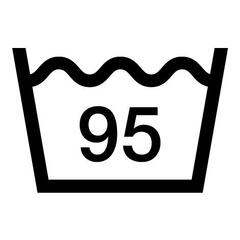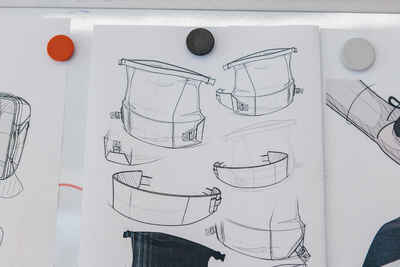Kids’ Hiking Shoes with Rip-tab MH100 Mid from Jr size 7 to Adult size 2 Grey Pi
Store Availability
Store Availability
BENEFITS

Easy dressing
Rip-tab is available up to UK size 1.5 so they can put them on by themselves!
Lightweight
163 g per boot in size C12.
Traction
The shape and depth (3mm) of the studs ensure grip on all terrains
Cushioning
Exclusive heel cushioning system. Guaranteed comfort and durability.TECHNICAL INFORMATIONS
Sole grip
To be awarded certification, the shoes must pass laboratory tests to assess the grip rate (0.6 for this model) on different surfaces (Smooth, Rugged, Dry, Wet).
To validate these tests, we also assess the quality of our soles on the field, in the mountains, by a panel of young testers.
Which size should I select
BUYING TIPS
Gradually start using you shoes during your first few hiking trips to break them in.On the internet, you can print the outline and check the foot length: https://pdfcoffee.com/pedimetreuepdf-pdf-free.html
REMOVABLE INSOLE
Product design: our expertise
composition
composition
Tips for storage and maintenance
 MAXIMUM WASH TEMPERATURE 95°C. NORMAL TREATMENT.
MAXIMUM WASH TEMPERATURE 95°C. NORMAL TREATMENT.
Storage tips
TESTS AND WARRANTY
Test product
Warranty
Agree by
Ecodesign approach
With ecodesign, we reduce the environmental impact of our products.
Analysing the product's environmental footprint enabled us to identify the most impactful stages of its life cycle. Thanks to this approach, our design teams were able to develop this product while significantly reducing its environmental impact.
Ecodesign actions on this product
-
 Environmental Impact
Environmental ImpactDesigned to reduce environmental impact
Product made with a CO2eq reduction of 16% compared to the previous or similar product
Our design teams are working to develop processes that will reduce the impact of a product, while preserving its technical characteristics. This reduction relates to the following indicators: climate change, air pollution, water pollution and resource depletion.
-
 Material
MaterialRecycled polyester
Product made from 16% recycled polyester
Using recycled polyester rather than conventional polyester reduces the CO2 emissions linked to the material by at least 16%.
-
 Material
MaterialRecycled thermoplastic
Product made from 11% recycled thermoplastic
Using recycled thermoplastic rather than conventional thermoplastic reduces the CO2 emissions linked to the material by at least 6%.